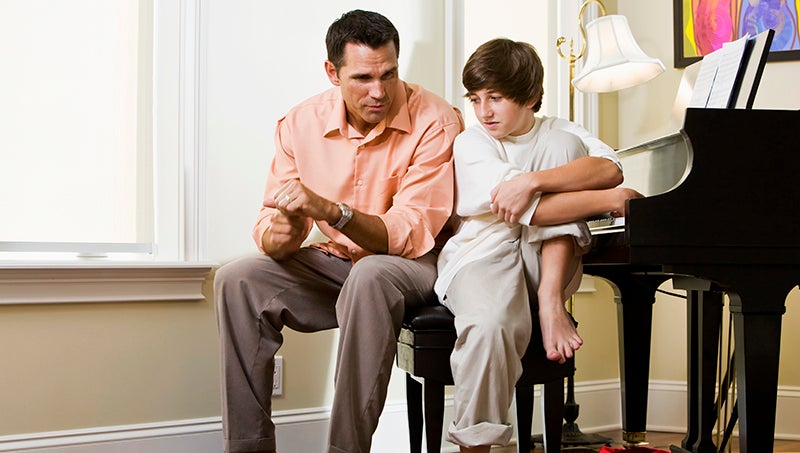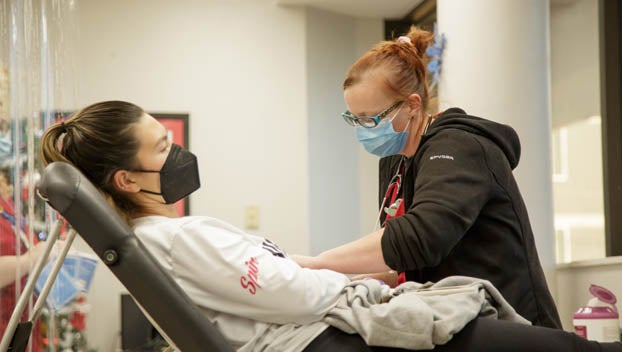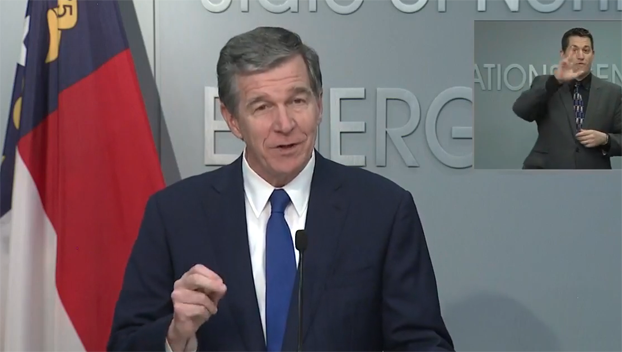How to talk to your kids about COVID-19
Published 6:16 pm Wednesday, March 18, 2020
|
Getting your Trinity Audio player ready...
|
Conversations about coronavirus are everywhere — at home, at the grocery store, at the dinner table. For many adults, the topic and actions to be taken individually to prevent its spread may seem challenging enough. For children, they might seem overwhelming.
According to clinical psychologist Tamara Stevens, of Harbor Psychological Services in Washington, there are a few ways to ensure children are informed about COVID-19, and taught proper sanitary practices, while calming fears and avoiding unnecessary anxiety.
WHAT TONE SHOULD PARENTS/CAREGIVERS TAKE?
“Keep your tone light and reassuring, but not dismissive. While you might feel anxious inside, don’t convey that to your child. They will follow your lead when deciding how to react, so if you suggest fear, they’ll sense it. Let them know it’s OK if they feel afraid when things are unpredictable and encourage them to tell you how they feel any time.”
HOW TO TALK TO CHILDREN ABOUT COVID-19
“Limit details to what they’re able to understand, but encourage them to ask questions any time. Explain that they might hear people talking about a new sickness or have to change usual activities such as school. Let them know that any time we discover a new type of illness, we need time to learn more about how to treat it. Sometimes we change behaviors or activities to give us that time. Staying home from school or daycare isn’t supposed to be scary — it just gives doctors and teachers time to figure out the best ways to keep everyone healthy.
“It might also help to remind them that there are huge networks of doctors, teachers and public officials working hard all the time to keep kids safe. If these people say kids should stay home from school, it doesn’t mean that school is always a scary place to be. It just means that this large safety net is working like it should.”
WHAT SHOULD PARENTS/CAREGIVERS AVOID SAYING?
“Avoid talking in detail about potential negative outcomes, such as large numbers of deaths or economic disaster. Parents will need to plan for job and financial changes, but keep those conversations between adults only, out of earshot of kids. Also, avoid negative talk about political figures or decision-makers, as this could shake the child’s confidence in the people trying to take care of the situation.”
A CHILD HAD A BIRTHDAY PARTY COMING UP, NOW HIS PARTY’S CANCELED
“Accept that it’s disappointing and be supportive. Explain that everyone is working together to stay healthy, and we don’t our friends to get sick. Remind them it’s normal to change things to keep from spreading an illness that’s going around, and this is another of those times. Since this is a new kind of illness, we’re being a little more careful until we find the best medicine. Perhaps brainstorm some other fun options you can do at home to celebrate the day in the meantime.”
WHAT ASSURANCES CAN PARENTS/CAREGIVERS GIVE CHILDREN ABOUT ‘GERMS’?
“As with most illness, good hand washing, avoiding touching faces and avoiding commonly touched objects in public places works pretty well. Stuff at home that we’re not sharing with others is safer, and parents know how to keep things clean at home so kids don’t have to worry so much. It helps to keep in mind the child’s developmental level — a 3-year-old will have a much more concrete interpretation than an older child. It might help to give younger children examples of safe as well as less safe things, so they don’t overgeneralize and get anxious.”





